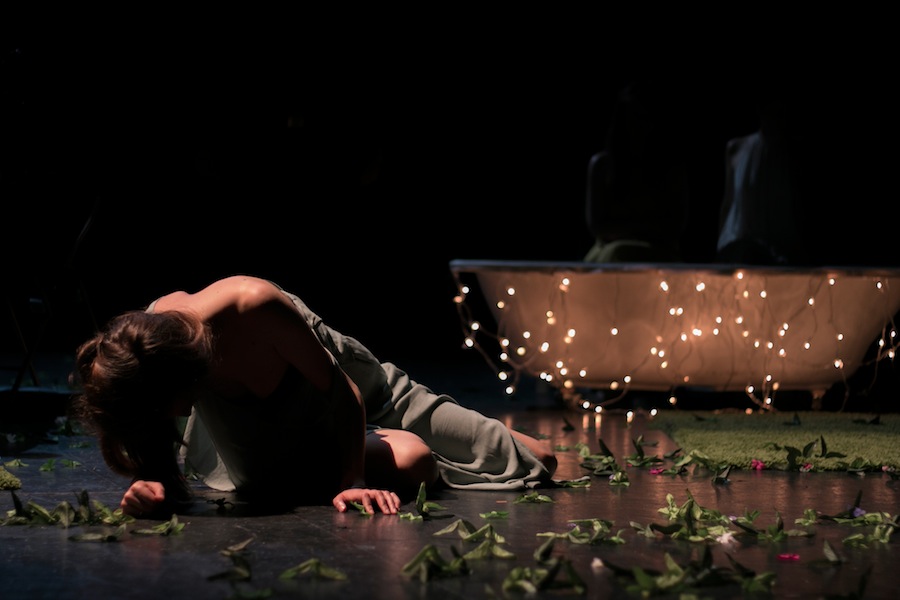
The Caen theatre, a Mecca for Baroque zarzuela
09/11/2019 - Le Monde - Marie-Aude Roux
The exceptional combination of Vincent Dumestre and Omar Porras masterfully brings Sebastian Duron’s “Coronis” back to life, a beautiful woman who has been asleep since the 18th century.
Sebastian Duron’s Coronis, a baroque zarzuela presented at the Théâtre de Caen from 6 to 9 November, in co-production with teams from Rouen, Limoges, Amiens, Lille and the Opéra Comique in Paris, is an exciting and, to put it bluntly, eminently bewitching discovery. This French premiere is also a stage premiere, since this mythological pastoral, first performed at the very beginning of the 18th century for the young King of Spain, Philip V, has never before been staged on stage.
Singers such as Placido Domingo and Teresa Berganza have sung the zarzuela of the 19th century, whose spirit is similar to that of the operetta, but the rich Baroque hours of this lyrical genre, born in Spain during the Golden Age and which spread as far as the Spanish-speaking Americas, remain little known.
And yet there is so much charm and invention in the music of the Madrid choirmaster who, having brilliantly assimilated the lessons of Italian opera, added to the mellow sounds of the Baroque instrumentarium the spicy folklore of guitars and castanets.
A magnificent encounter
The plot of the work is as slender as it is delicious, with the beautiful Coronis, priestess of Diana, hunted in turn by Apollo and Neptune, through the intermediary of the monstrous Triton, who is also in love with the nymph. Around Proteus the Wise, the only role played by a man, there is a female troupe. At the time, the stage was the preserve of actresses and singers, as the gentlemen of the chapel refused to commit themselves to the stage, which they considered too licentious.
Vast cosmogonies
But the absolute success of the show draws its substance from a magnificent encounter, that of conductor Vincent Dumestre and director Omar Porras. A delicate art of polysemy for this Colombian who, with a trestle stage, a few props and a pair of curtains, draws vast cosmogonies born of the Spain of the conquistadors. Bruno Fatalot’s inventive wardrobe syncretises this work, projecting the Spain of Velasquez and the New World of Christopher Columbus onto the lyrical bodies of acrobats and dancers. On the walls of Plato’s cave, the ‘Porrassian’ prism projects what remains hidden, denouncing the tawdry gods who emerge, one from a trunk of old costumes, the other from a paper altarpiece. All in vain. The fickle people, worshippers of chimeras and disdainful of concord, chose catastrophe, before Jupiter, through his messenger Iris, imposed a hard-won peace. Rarely has there been such a perfect match between stage and orchestra.
An actor’s direction that uses circus artists and dancers with such subtlety for the sole benefit of musical expression, a direction that is by turns passionate and poignant, lively and refined, in perfect osmosis with the theatrical gesture, Vincent Dumestre and his Poème Harmonique intoxicated with baroque guitars and castanets.
On stage, a cast in unison. The flamboyant Ana Quintans gives a gripping performance as Coronis: it’s easy to see why Isabelle Druet’s Triton sheds tears of love for her. In the category of couples on the verge of a nervous breakdown, the stunning Anthéa Pichanick and Victoire Bunel find an Olympian echo in the pitched battle between the immature Apollon and Neptune, alias the mezzos Marielou Jacquard and Caroline Meng.
Emiliano Gonzalez Toro’s handsome tenor, the only male among the ladies, whether in drag or not, gives Proteus the air of an aedic. This little miracle of music, theatre and poetry will be recorded in 2020 during the ensuing tour by the Alpha label, hopefully leading to a DVD version.
Coronis, by Sebastian Duron.
Omar Porras, director
Le Poème Harmonique, Vincent Dumestre (conductor).
Théâtre de Caen, November.
Tour from 31 January to 25 March 2020, in Rouen, Limoges, Amiens and Lille.